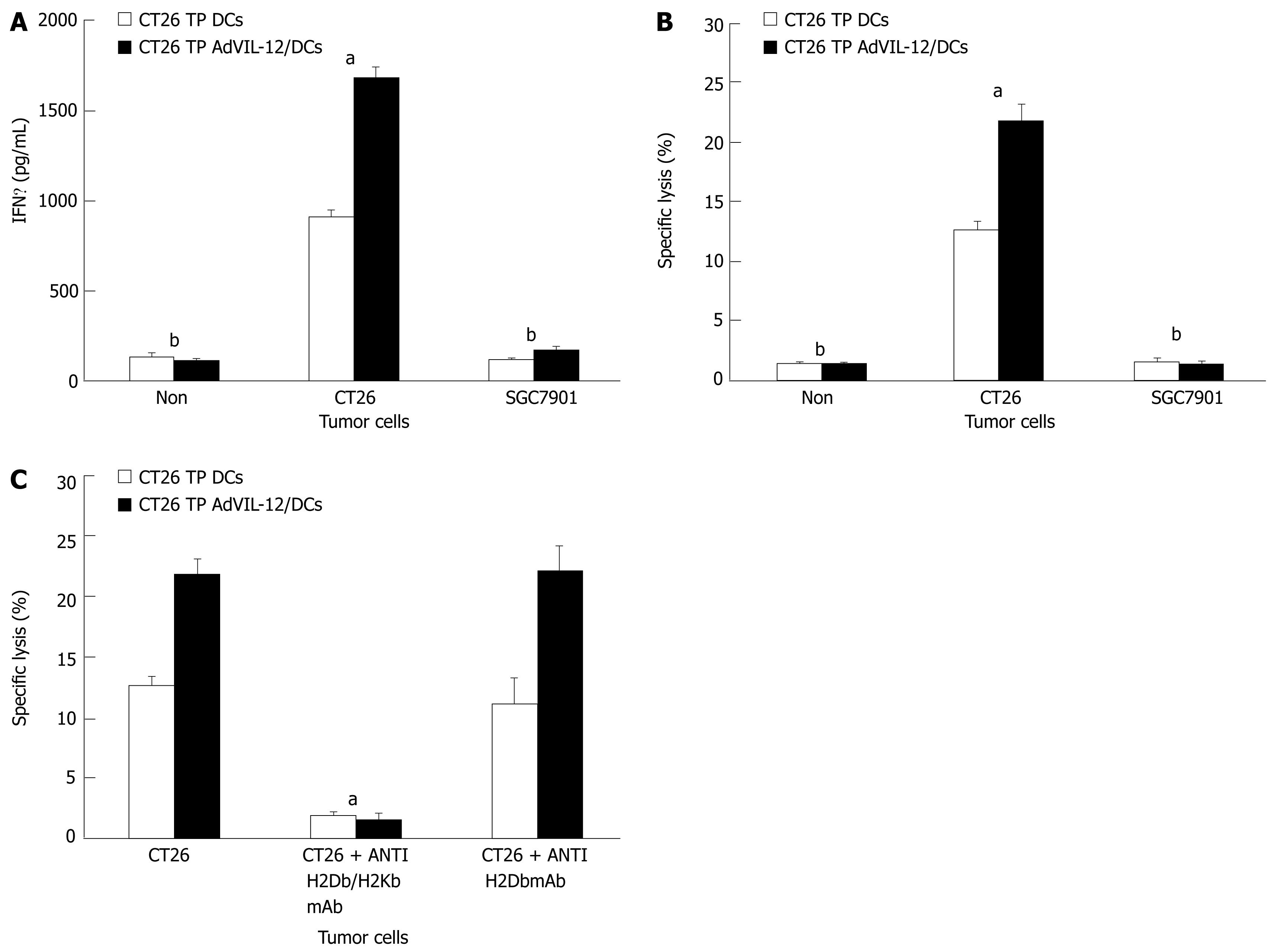Copyright
©2008 The WJG Press and Baishideng.
World J Gastroenterol. Jan 28, 2008; 14(4): 532-540
Published online Jan 28, 2008. doi: 10.3748/wjg.14.532
Published online Jan 28, 2008. doi: 10.3748/wjg.14.532
Figure 5 Assays for IFNγ secretion and tumor-specific CTL activity in the immunized mice.
Splenic CD3+ T cells from mice that survived the CT26 tumor challenge until d 61 in protective models were magnetically isolated. CD3+ T cells were restimulated ex vivo by culturing with the MMC-treated CT26 tumor cells. Then these restimulated effector T cells were added to the wells containing target CT26 or SGC-7901 tumor cells in 96-well plates. After 20 h, supernatant from each well was collected for measuring IFNγ production with the mouse IFNγ ELISA kit (A), and for measuring cytolytic activity with a Cytotoxicity Detection Kit (B). In some experiments, the target CT26 tumor cells were incubated with a MAb to MHC classImolecules (anti-H2Db/H2Kb) or with control antibody (anti-H2Dd) before the addition of restimulated effector T cells to evaluate the specificity of CTL activity. Statistical analysis used the paired Student’s t test. Data are given as mean ± SE. A, B aP < 0.05, CT26 TP AdVIL-12/DCs compared with CT26 TP DCs in the CT26 groups, bP < 0.01 CT26 vs SGC7901 or Non, respectively. (C), aP < 0.05, CT26 + antiH-2kb/DbmAb vs CT26 or CT26 + antiH-2DbmAb, respectively.
- Citation: He XZ, Wang L, Zhang YY. An effective vaccine against colon cancer in mice: Use of recombinant adenovirus interleukin-12 transduced dendritic cells. World J Gastroenterol 2008; 14(4): 532-540
- URL: https://www.wjgnet.com/1007-9327/full/v14/i4/532.htm
- DOI: https://dx.doi.org/10.3748/wjg.14.532









